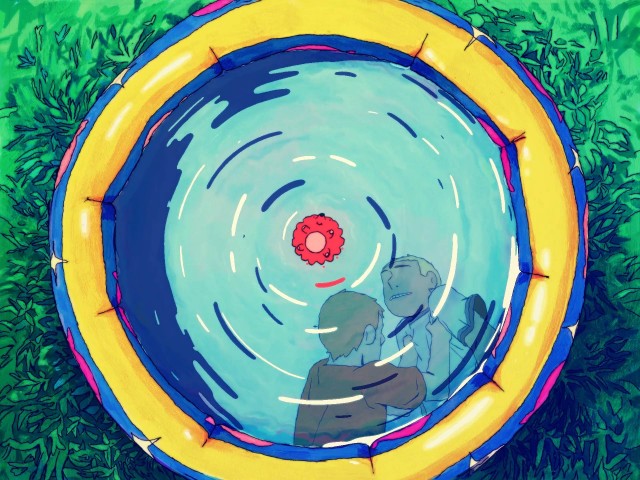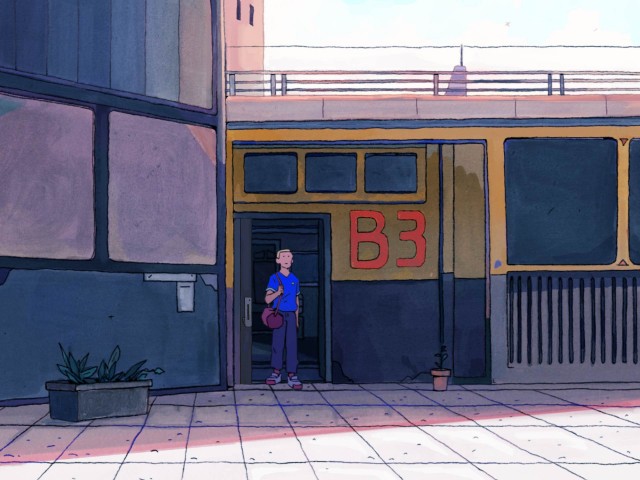Screaming too loud is what got Horacio killed. Guillaume, the murderer, is subsequently sent to prison and this uncanny, miscellaneous news item is the canvas of writer/director Caroline Cherrier’s Horacio. An unsettling short, where a man shares his story with a seemingly disarming tone, the unemotional reactions of this man and his mother mean the film is presented with a strange serenity, which at times can be terrifying.
“This guy was screaming, screaming, and after a while, he was not screaming anymore”
Despite the absurdity of the premise, it turns out that the film is actually based on real events. Cherrier shared with us that it all started with her uncle, who worked in a jail, and explained how a prisoner had summed up the event that had led him to be incarcerated as: “this guy was screaming, screaming, and after a while, he was not screaming anymore”. The balance between the extreme gravity of the event and the actual trigger is what stuck with Cherrier and what she articulated her film around: “I was shocked by the absence of any dramatic nor moral values”, she explains. Before adding that she “decided to adapt this simple sentence, to create a character with a different view of the world, who could carry these words”.

Horacio and Guillaume fighting in the backyard, just before the murder.
The violence of the narrative juxtaposed with the nonchalance of the narration is simultaneously striking, compelling and fascinating. Even though we don’t know much about the main character Guillaume, his narration of the events fleshes out his character. The murder carries all the dramatic weight of the film, and Cherrier perfectly balances it with her choice of color palette and a dash of humor here and there with the mother. The visual look contradicts the darkness of the story, and the very calm pacing removes any manufactured anxiety or tension that would be expected given the narrative.
Since the film is told entirely from Guillaume’s perspective, Cherrier also places her audience in an uneasy seat, stripping all the severity from the story. By removing the prism we usually see reality through, the filmmaker offers a completely different perspective on things, without removing our basic sense of morals. Yet this shake-up is probably what makes the film so memorable in how it affects us.

“This is the technique I use in all my films and I like it” – Cherrier discussing the aesthetic decision to use 2D animation over gouache backgrounds.
With Cherrier employing 2D animation over gouache backgrounds, her aesthetic aims to mimic the cartoons of her childhood. While this visual approach does compliment the distant and simplified perspective of the film’s protagonist, at the end of the day, Horacio is still a very dark film and its the contrast between the heavy story and light style that truly gets under the skin. The subtle mounting tension around the mother and her lack of volume control simmers and simmers, until it is quite palpable and terrifying by the conclusion of the short. It wraps the film on a sort of open ending, keeping the audience on the edge of their seat, wondering if Guillaume will kill again.
Ahead of its online premiere, Horacio hit the festival circuit with notable stops at Clermont-Ferrand, Annecy, the Palm Springs ShortFest and GLAS. Horatio is one of those films that stays with you thanks to Cherrier’s control over the tone and we can’t wait to see the next story she will sink her teeth into.

 Céline Roustan
Céline Roustan